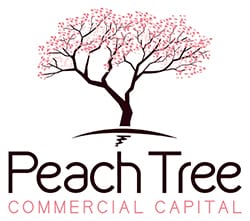As an entrepreneur, you want to be able to run your business smoothly and efficiently. However, for many people this, unfortunately, means floating on credit when money is tight. While having a company credit card can be essential, it’s never a good idea to rely on credit cards too often to balance your books.
A significant reason why credit cards can hurt your business is that they have exceedingly high interest rates. In many cases, it can be as high as 18% plus the prime rate, which is set by the Federal Reserve, and which recently has sat between 5% and 6%. To make matters worse, if you have a variable interest credit card (which most businesses do), then the rate can rise and fall along with the Prime, meaning that you could find yourself suddenly spending more money on interest payments.
Fortunately, there are better options. Regardless of your past credit card history, it’s imperative that you understand what you can do to ensure that your business runs smoothly without incurring excessive fees and interest.
How Commercial Loans Can Help Your Business
There are three primary ways that commercial loans can help you weather any situations where money is tight. Let’s break them down.
Factoring
For many businesses, you have to rely on your clients’ timing for making payments, which may or may not be fast and reliable. You have expenses and bills to pay right now, including utilities, payroll, and other operational costs. So if you’re still waiting on accounts receivable, you may need to money to bridge you over until payments come in.
Factoring is an excellent choice here because it allows you to borrow against these future payments. Typically speaking, you will sell your accounts receivable (i.e., invoices) to a third party, who will offer up to 95% of the invoice amount up front. In exchange for this, the third party gets a discount on the final payment, which can range from two to six percent.
One benefit of factoring is that the lender looks at the credit status of your clients since they are the ones repaying the loan. Thus, even if you don’t have great credit, you may easily qualify for financing if you have strong clientele. Also, lenders can provide other services like credit checks, accounting help, and financial reports.
Bridge Loans
Getting a short-term loan can be a smart move for your business, particularly if you’re trying to expand or pay for expenses while waiting for more funding or money to come in. Bridge loans typically last between 6 months and 3 years, and they have higher interest rates than a traditional bank business loan. However, when compared to credit cards, these rates are much more manageable. And once the loan is paid off, you don’t have to worry about them.
Typically speaking, bridge loans are excellent if you have non-liquid assets that you can use as collateral. Also, they can get approved much faster than a traditional business loan, which can help if you need funds immediately. Finally, there are many different ways to customize one of these loans so that you don’t borrow any more than you need.
Lines of Credit
Sometimes, you need access to funds regularly. Maybe the amounts aren’t too high, or perhaps you only need to borrow for a really short period, such as a few weeks. For example, if you have a retail store you may need to borrow to get new inventory, but once it sells you can repay the balance immediately.
In these cases, a business line of credit is the best option. Rather than securing a new loan each time you want additional cash, you simply have guaranteed access to funds whenever you need them up to a certain amount. Draw on the line whenever you need and pay it off as soon as possible.
Lines of credit can be secured or unsecured. The latter option means that you don’t have to put up collateral. Secured credit, however, does use collateral or a lien on fixed assets to ensure that you don’t default on payments. Usually, a secured line of credit is necessary if the provided financing is greater than six figures.
Finally, when compared to a business credit card, lines of credit have better interest rates, making them a much more affordable option. Also, considering that you are still building your credit rating in the process, it’s an excellent choice for companies of all sizes.
Conclusion
Overall, having a business credit card is excellent for ease of use and for when you need to cover small or unexpected expenses. But you shouldn’t rely on them for most of your operational costs. If you do, then you could drown in interest and put your enterprise in jeopardy.
Instead, talk with a commercial loan lender and find a solution that works for your particular situation. Just because putting things on a credit card is easy doesn’t mean that it’s the best solution, so know what options you have before making a move. If you need help with business financing, contact us today.

